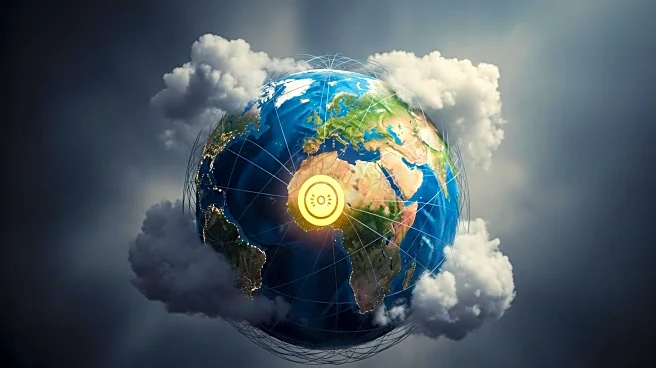What is the story about?
What's Happening?
The United Nations is set to reimpose comprehensive economic and military sanctions on Iran, following accusations by the UK, France, and Germany that Iran has failed to meet its nuclear commitments. This decision comes after a 30-day period for diplomatic resolution expired without agreement. The sanctions, which are scheduled to take effect at 00:00 GMT on Sunday, include an arms embargo, a ban on uranium enrichment, and restrictions on ballistic missile activities. Additionally, there will be a freeze on assets and travel bans for certain Iranian figures and entities, along with authorization for countries to inspect cargo from Iran Air and Iran Shipping Lines. Iran's President Masoud Pezeshkian has condemned the sanctions as unjust and illegal, asserting that Iran's nuclear program is for civilian purposes only. The situation has been exacerbated by Iran's increased nuclear activities following the U.S. withdrawal from the Joint Comprehensive Plan of Action (JCPOA) in 2016.
Why It's Important?
The reimposition of UN sanctions on Iran is significant as it could further destabilize the Middle East and strain international relations. The sanctions are likely to have a severe impact on Iran's economy, which was previously crippled under similar restrictions before the 2015 nuclear deal. This development could also affect global oil markets and international trade, given Iran's role as a major oil producer. The decision underscores ongoing tensions between Iran and Western powers, particularly the U.S., which has taken a hardline stance against Iran's nuclear activities. The sanctions may also influence diplomatic relations between the U.S., its European allies, and other global powers like China and Russia, who have opposed the reimposition of sanctions.
What's Next?
As the sanctions take effect, Iran may seek to strengthen its alliances with countries opposed to the sanctions, such as China and Russia. The international community will be closely monitoring Iran's response, particularly any potential escalation in nuclear activities or regional conflicts. Diplomatic efforts may continue in an attempt to reach a new agreement or modify existing terms. The situation could also prompt further discussions within the UN Security Council, as member states navigate the geopolitical implications of the sanctions.
Beyond the Headlines
The reimposition of sanctions raises ethical and legal questions about the enforcement of international agreements and the balance of power within the UN Security Council. It highlights the challenges of maintaining global nuclear non-proliferation efforts while addressing the security concerns of individual nations. The situation also reflects broader geopolitical shifts, as countries like China and Russia assert their influence in opposition to Western policies.















